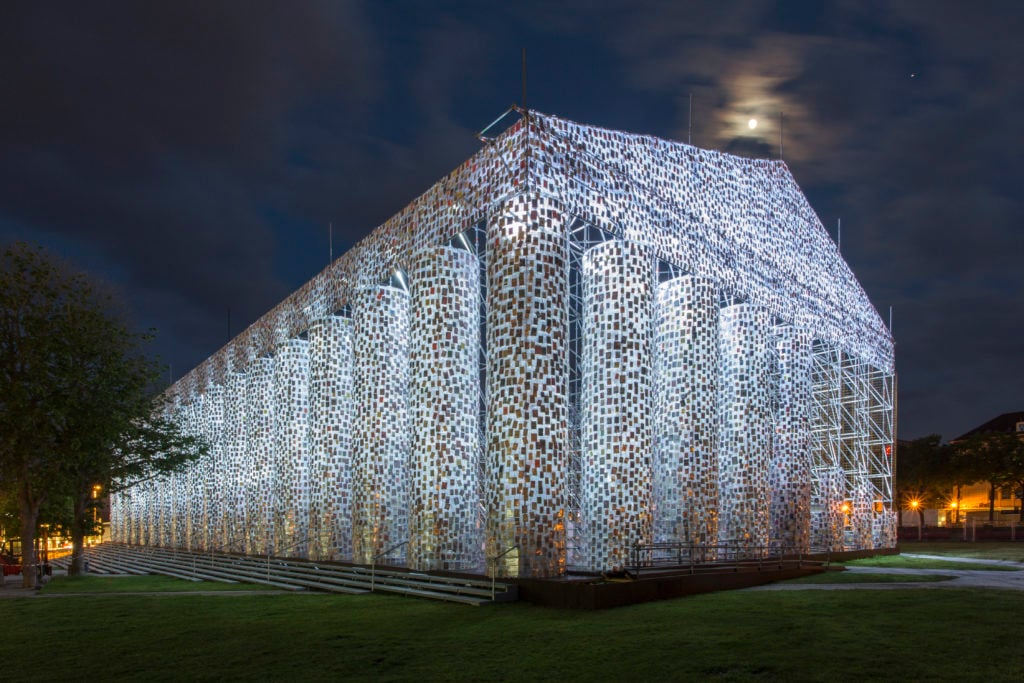Art World
Kassel Plans a Permanent documenta Institute to Build on the Art Festival’s Success
The €24 million initiative has picked a site.

The €24 million initiative has picked a site.

In Kassel, the establishment of a planned €24 million ($26.7 million) documenta institute is in its final stages after the city council agreed on a site. The 50,000-square-foot building will house workspace for 25-30 staffers and scholars, and be home base for a newly created documenta professorship.
The new institute intends to promote academic research and continue interdisciplinary research into topics raised by past editions, and to convey the history of the world-renowned quinquennial exhibition. The small German town hopes the initiative can attract scholars, curators, artists, and other cultural figures in between the show’s five year cycles, sustaining interest in documenta with a series talks and events.
According to local newspaper HNA, politicians unanimously approved the idea, deciding in favor of the government’s preferred location adjacent to the University of Kassel. “The location spatially forms a link between the university and the central documenta locations,” Kassel’s mayor Bertram Hilgen said in a statement.
The proposed location beat out a rival proposed site behind the primary documenta venue, the Fridericianum.

Documenta’s traditional home, the Kunsthalle Fridericianum in Kassel
Photo: Carroy via Wikimedia Commons
With a contribution of €12 million ($13.3 million) the majority of the institute’s cost will be covered by the German federal government. The state of Hessen has pledged a further €6 million ($6.6 million), and the city of Kassel will contribute €4 million ($4.4 million). Funding for the remaining €2 million ($2.2 million) is being sought from private donors—and much of the money has already been raised, Hilgen said.
Kassel is billing itself as “documenta city,” and it’s clear that the small town of 200,000 inhabitants wants to capitalize on its status as an art world destination, and is ready to invest heavily in maintaining its status as a cultural capital in the face of the globalization of the art world, symbolized by this year’s decision to open one half of the big show in Athens.